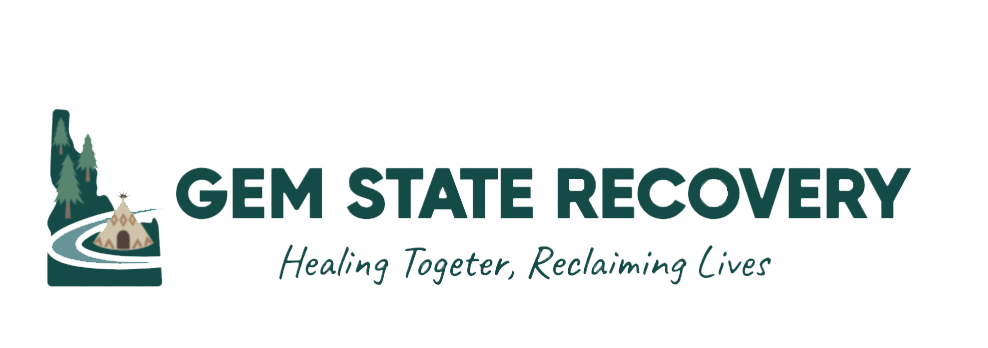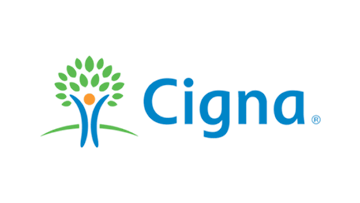
What is Caldwell Hallucinogens Addiction Treatment Gem State?
Hallucinogens addiction, though often overlooked in discussions about substance dependency, presents a complex and multifaceted challenge for individuals caught in its grasp. This form of addiction does not necessarily hinge on the physical cravings that characterize opiate or stimulant dependencies but rather entangles users in the psychological allure of altered perceptions and consciousness. Hallucinogens, such as LSD, psilocybin mushrooms, and peyote, can profoundly distort an individual’s sense of reality, leading to experiences that are intensely vivid and emotionally significant. These substances can cause visual or auditory hallucinations, profound shifts in thought processes, and alterations in the perception of time and space.
For some users, these experiences become a sought-after escape from the mundane or painful aspects of life, setting the stage for habitual use. The psychological grip of hallucinogens is further tightened by their ability to induce intense spiritual or existential insights, making the user feel connected to deeper truths or realities that seem inaccessible under normal circumstances. This perceived enhancement of mental and emotional depth can create a compelling reason to return to the drug repeatedly.
Addiction to hallucinogens also carries unique risks and consequences. While physical dependency is less common than with other substances, repeated use can lead to tolerance—requiring increasingly larger doses to achieve the same effects—and persistent psychosis, including disorganized thinking, paranoia, and visual disturbances. Moreover, individuals may experience what is known as Hallucinogen Persisting Perception Disorder (HPPD), where flashbacks of previous hallucination occur spontaneously without warning.
The journey towards recovery from hallucinogen addiction requires confronting not only the psychological dependence on these substances but also navigating the complex emotions and revelations they unveil. Treatment often involves comprehensive therapy sessions aimed at understanding the root causes of addiction while developing coping strategies that address both the desire to escape reality and any underlying mental health issues. Emphasis is placed on rebuilding one’s relationship with reality, fostering connections with people and activities that ground individuals in their present environment.
How We Treat Caldwell Hallucinogens Addiction Treatment Gem State
At Gem State Recovery in Caldwell, we understand the complex and often misunderstood nature of hallucinogen addiction. Hallucinogens can lead to psychological dependence that is as challenging to overcome as any physical addiction. Our approach to treatment is holistic and personalized, recognizing that each journey towards recovery is unique.
Our program begins with a comprehensive evaluation to understand your specific situation, including the substances used, duration of use, and any underlying mental health conditions. From there, we craft a tailored treatment plan that addresses not just the addiction itself but also the root causes and triggers that contribute to substance use.
Treatment for hallucinogen addiction at Gem State Recovery may include cognitive-behavioral therapy (CBT), which helps individuals recognize and change negative thought patterns and behaviors related to drug use. We also offer group therapy sessions, providing a supportive community where individuals can share experiences and strategies for coping with cravings and avoiding relapse.
Mindfulness and stress management techniques are integrated into our programs to help manage the anxiety and depression that often accompany hallucinogen withdrawal. Our goal is not only to help you achieve sobriety but also to equip you with the tools you need for long-term recovery and well-being.
At Gem State Recovery in Caldwell, you’ll find a compassionate team dedicated to supporting you every step of the way on your journey towards recovery. We believe in your strength and potential to overcome addiction and live a fulfilling life free from hallucinogens.
Our Addiction Treatment Programs
We only use proven clinical services to treat our patients, ensuring the highest level of care and success rates. Our team consists of highly trained therapists and doctors who specialize in a variety of mental health and addiction issues.
Clinical Services We Use for Treatment
At Gem State Recovery, we understand the struggles individuals and loved ones face when reaching out for assistance. Our dedication is to cultivate a welcoming and supportive environment for our patients, prioritizing their well-being. Our goal is to provide inclusive and effective therapy services to everyone in need.

Cognitive Behavioral Therapy (CBT)
Cognitive behavioral therapy (CBT) approach is a therapeutic method that focuses on the intricate relationship among thoughts, emotions, and behaviors.

Dialectical Behavioral Therapy (DBT)
Dialectical behavioral therapy (DBT) is frequently employed as a treatment method, particularly benefiting individuals diagnosed with borderline personality disorder.

Educational Groups
Educational groups are a key part of our healing process, providing participants with the opportunity to learn about addiction, mental health, and coping strategies in a supportive setting.

Experiential Therapy
Experiential Therapy at Gem State Recovery provides a powerful path to healing. Through activities such as role-playing, guided imagery, and outdoor adventures, clients connect deeply with their emotions and experiences.

Eye Movement Desensitization and Reprocessing (EMDR)
The EMDR psychotherapy approach is a valuable method that has demonstrated effectiveness in treating trauma-related disorders like post-traumatic stress disorder (PTSD).

Family Support
At Gem State Recovery, we firmly believe that involving family in the recovery journey is crucial for individuals to maintain lasting healing and build stronger family bonds.

Group Therapy
Group therapy at Gem State Recovery offers a supportive space for sharing, learning, and developing coping strategies with expert guidance, fostering healing and long-term recovery.

Individual Therapy
Gem State Recovery’s Individual Therapy provides personalized, one-on-one support in a safe, confidential space, helping clients explore their thoughts and feelings while developing coping strategies for growth and healing.

Intervention Assistance
We understand the challenges of addiction and the courage it takes to seek help. Our Intervention Assistance program helps guide families through the delicate process of encouraging a loved one to enter treatment.

Medication Management
Medication management is tailored to support each person's recovery journey. Our healthcare team combines compassion and expertise to ensure safe, effective medication use, adjusting treatment to fit individual needs.

Motivational Interviewing (MI)
Motivational Interviewing (MI) is a therapeutic approach that places the client at the center, with a key focus on enhancing an individual's motivation and readiness for change.

Relapse Prevention
Relapse prevention entails honing strategies and skills to effectively navigate triggers, cravings, and high-risk situations that might precipitate a relapse into substance use.
We Work With Most Major Insurance Providers
We are committed to providing accessible and effective care to all who come to our center. We understand the challenges of facing addiction and mental health issues without the extra stress of financial concerns. That's why we work closely with your insurance provider to maximize your treatment coverage.
Get Help For a Loved One
Don’t hesitate to reach out – make this call the one that changes everything.
Get the Guidance You NeedGet Help For Yourself
Don't hesitate to reach out – let this call be the one that changes it all.
Take the First StepFAQ
We've compiled a list of frequently asked questions to provide clarity on the experience and alleviate any remaining fears or anxieties you might have.
A typical detox phase typically lasts about five days, although this timeframe can range from three to 10 days depending on individual circumstances. Factors such as the type and amount of substances consumed, the duration and frequency of use, and the method of intake all play a role. Together, these variables determine how long the detox process should last for either yourself or a loved one.
During treatment, a structured and nurturing environment facilitates physical, mental, and emotional healing. The day commences with a wholesome breakfast, followed by therapy sessions, group activities, and workshops addressing the underlying causes of addiction. These encompass individual counseling, group and family therapy, physical exercise, educational talks, and recreational activities. Throughout the day, there are well-balanced meals, moments for reflection and relaxation, and chances for personal growth through journaling or meditation. Evenings may involve peer support meetings or 12-step programs, concluding with time for rest. Each day at our centers is meticulously crafted to promote comprehensive recovery, empowering individuals to foster positive habits and coping mechanisms.
When starting treatment, it's crucial to bring along comforting and supportive items. These can range from comfy clothes and personal care essentials to prescribed medications (with proper documentation) and materials like journals or books for reflection. Conversely, addiction treatment centers have restrictions on what can be brought in. Prohibited items typically include drugs, alcohol, weapons, or anything that could impede recovery. To ensure a smooth entry into treatment, it's essential to consult the chosen facility beforehand for a comprehensive list of allowed and banned items.
Recognizing the strong link between addiction and mental health challenges, our addiction treatment centers prioritize addressing underlying mental health issues. With a dedicated team offering personalized support and therapy for conditions such as depression, anxiety, PTSD, and more, we take a holistic approach to recovery, focusing on both physical and mental well-being. Our admissions team is committed to matching you with the perfect facility for comprehensive care, ensuring a successful healing journey. You can rely on us for steadfast support as you navigate towards lasting sobriety and improved mental wellness.
Our admissions team is dedicated to helping you discover the ideal treatment center tailored to your needs. The decision to choose a rehab facility can be daunting, but our team is here to provide guidance. With compassion and expertise, our professionals comprehend the intricacies of addiction and the significance of selecting the appropriate treatment. By considering your unique requirements, preferences, and any co-occurring conditions, we aim to match you with a facility that offers personalized care. You are not alone in this journey – our admissions team is committed to supporting you every step of the way towards a successful recovery.
Watching a loved one fight addiction can be heartbreaking and overwhelming. Feeling powerless and unsure of how to help is common. The first step in supporting your loved one is to have an open conversation about their addiction. Share your concerns, offer your support, set boundaries, and encourage them to seek professional help. Exploring treatment options together and ensuring access to resources can also be beneficial.
Remember, patience, empathy, and unwavering support are key on this journey. Recovery takes time. By taking a compassionate and supportive approach, you can help guide your loved one toward a healthier, addiction-free life. Don't hesitate to reach out for guidance and support from our team; we are here to assist you and your loved one at every stage of the recovery process.
No matter how dedicated you are to your recovery journey or how determined you are to maintain sobriety, relapses can happen. According to the National Institute on Drug Abuse, relapse rates in recovery range from 40% to 60%. After a relapse, it's common to feel shame and regret, and you might even contemplate giving in to addiction rather than fighting the urge to use. While these feelings are normal, they can impede progress towards a drug-free life. Instead of seeing a relapse in a negative light, view it as a learning opportunity. Refine your relapse prevention strategies and identify triggers. By understanding the underlying causes of the relapse, you set the stage for a stronger recovery journey.
The initial step involves assessing the need to return to rehab. If the relapse was an isolated incident and you are willing to review or adjust your recovery plan, going back to an inpatient facility may not be necessary. Such a setting provides hands-on care and continuous monitoring. However, falling back into a recurring pattern of substance misuse may indicate the need to re-enter a structured treatment program. If discussions about substance use resurface, socializing with individuals who encourage drinking, or turning to substances for coping, it indicates a more severe issue that requires immediate attention.
Upon re-entering treatment after a relapse, the main focus should be on reintegrating into daily life. Choosing a sober living environment for a few months post-treatment could be the most effective way to prevent relapse, as accountability and structure are beneficial during the initial vulnerable phase. Additionally, having an outpatient therapy plan for ongoing support after rehab is advantageous.
Take the First Step - Verify Your Insurance
Breaking free from addiction doesn't need to be daunting. By taking the first step of completing the form, you embark on the journey towards a healthier recovery. Our support and expert care are fundamental during the initial stages of treatment.




















